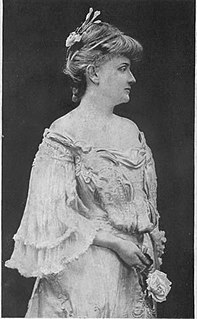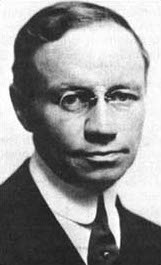A Quote by Gertrude Atherton
power, after it has ceased from troubling, is the dominant passion in human nature.
Related Quotes
Almost all men are born with every passion to some extent, but there is hardly a man who has not a dominant passion to which the others are subordinate. Discover this governing passion in every individual; and when you have found the master passion of a man, remember never to trust to him where that passion is concerned.
After decades of faithful study, ecologists have begun to fathom hidden likenesses among many interwoven systems. ...a canon of nature's laws, strategies, and principles...
Nature runs on sunlight.
Nature uses only the energy it needs.
Nature fits form to function.
Nature recycles everything.
Nature rewards cooperation.
Nature banks on diversity.
Nature demands local expertise.
Nature curbs excesses from within.
Nature taps the power of limits.
Every isolated passion, is, in isolation, insane; sanity may be defined as synthesis of insanities. Every dominant passion generates a dominant fear, the fear of its non-fulfillment. Every dominant fear generates a nightmare, sometimes in form of explicit and conscious fanaticism, sometimes in paralyzing timidity, sometimes in an unconscious or subconscious terror which finds expression only in dreams. The man who wishes to preserve sanity in a dangerous world should summon in his own mind a parliament of fears, in which each in turn is voted absurd by all the others.
Idealists are people who believe in the potential of human nature for transformation. . . . The most essential attribute of human nature is its mutability and freedom from instinct . . . it is always within our power to change our nature. So it is actually the idealists who are on the mark and the realists who are off base.
We mustn't be afraid of inventing anything...Everething there is in us exists in nature. After all, we're part of nature. If it resembles nature, that's fine. If it doesn't, what of it? When man wanted to invent something as useful as the human foot, he invented the wheel, which he used to transport himself and his burdens. The fact that the wheel doesn't have the slightest resemblance to the human foot is hardly a criticism of it.
How can the strength of one man stand against Jake and an army of demons?" "He can," I countered, "if he has the power of Heaven on his side. After all, Christ was a man." "He was also the Son of God, there's a difference." "Do you think they could have crucified him if he wasn't human?" I asked. "He was flesh and blood, just like Xavier. You've been here so long you underestimate the power of humans. They're a force of nature.
Democracy must stand or fall on a platform of possible human perfectibility. If human nature cannot be improved by institutions, democracy is at best a more than usually safe form of political organization . . . . But if it is to work better as well as merely longer, it must have some leavening effect on human nature; and the sincere democrat is obliged to assume the power of the leaven. [Progressive]



































